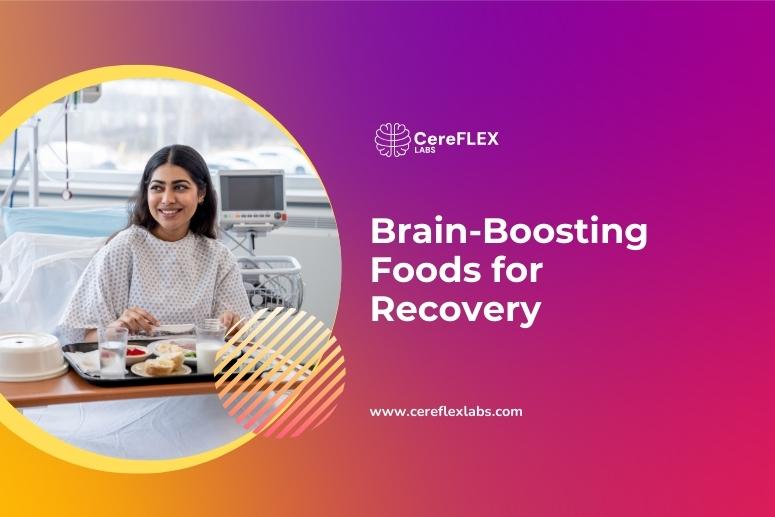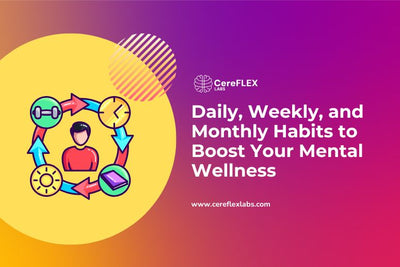Recovering from a brain injury highlights the critical role of proper nutrition for brain health, directly affecting the speed and extent of healing. The foods you eat influence recovery by reducing inflammation, repairing tissue, and improving cognitive function.
Beyond physical healing, good nutrition also supports mental clarity and emotional well-being. Understanding key nutrients, planning balanced meals, and considering supplements can significantly enhance the recovery process, helping individuals regain strength and cognitive abilities more effectively.

The Importance of Nutrition in Brain Injury Recovery
Nutrition plays a crucial role in brain injury recovery, directly influencing how well the brain heals and functions. After an injury, the brain requires specific nutrients to repair damaged cells, reduce inflammation, and support new tissue growth.
Key nutrients like omega-3 fatty acids, antioxidants, and vitamins help maintain brain cell structure and improve communication between neurons. Without proper nutrition, recovery may take longer, and cognitive and motor function may not fully improve.
A well-balanced diet also supports mental clarity and emotional well-being. Nutrients such as magnesium and vitamin D help regulate mood and reduce the risk of depression and anxiety, which are common after brain injuries.
Incorporating proteins, healthy fats, vitamins, and minerals into daily meals not only aids brain healing but also enhances physical strength, coordination, and overall recovery. Providing the body with the right nutrients promotes a more effective and sustainable healing process.
Key Foods and Nutrients for Brain Injury Recovery
No single food can heal the brain after an injury. Recovery requires time, patience, rehabilitation, and coping strategies—including proper nutrition.
Let’s explore the essential tools for brain health through key foods and nutrients that support healing. A well-balanced diet after a brain injury should include:

Adequate Calories
Calorie intake and meal frequency affect brain function. Individual needs vary, so working with a dietitian can help determine a suitable eating plan.
Magnesium
Magnesium supports nerve function, reduces brain inflammation, and regulates neurotransmitters, preventing damage from overstimulation.
Good sources: Dark chocolate, spinach, almonds, and avocados.
Omega-3 Fatty Acids
These healthy fats, primarily found in fish, enhance cognitive function and aid neuron repair. Since the body doesn’t naturally produce DHA (a crucial omega-3 fatty acid), it must come from food.
Good sources: Fatty fish (salmon, mackerel), flaxseeds, and walnuts.
Anti-inflammatory Foods
Inflammation often follows a brain injury. Research suggests anti-inflammatory diets improve pain, mood, and sleep.
Good choices: Fatty fish, healthy oils, flaxseeds, fruits, vegetables, and lean proteins. A dietitian can provide a more tailored anti-inflammatory meal plan.
Healthy Fats
About 60% of the brain is fat, making high-quality unsaturated fats essential. Diets high in saturated fats can negatively impact brain function.
Good sources: Olive oil, nuts, natural nut butters, and avocados (in moderation).
Vitamin E
Vitamin E acts as an antioxidant, protecting neurons and supporting brain function. Research links it to improved neurological performance.1
Good sources: Nuts, seeds, spinach, and certain oils.
Proteins and Amino Acids
Amino acids, the building blocks of protein, help repair body tissues, including the brain.
Good sources: Fish, lean meats, eggs, legumes, nuts, and seeds.
Fruits and Vegetables
Packed with essential vitamins and minerals, fruits and vegetables support overall health. Eating a variety ensures a wide range of nutrients.
Whole Grains
Whole grains contain B vitamins, which aid brain function and support communication between the brain and muscles.
Best options: Brown rice, wild rice, and multigrain breads.
Blood Sugar Balance
After a brain injury, the brain may struggle to convert glucose into energy. Maintaining stable blood sugar levels is essential.
Helpful foods: Fruits high in natural sugars (grapes, raisins), fruit juices. Prescription glucose medications may also be necessary—consult a healthcare provider.
Zinc
Zinc plays a key role in brain function, healing, and regeneration. It also supports memory and reduces oxidative stress.
Good sources: Shellfish, legumes, seeds, and nuts.
Curcumin
This spice, found in turmeric, may aid recovery and preserve cognitive function. While large amounts are needed for significant effects, even small doses can be beneficial.
Water
Hydration is critical for brain function. Dehydration can impair memory, focus, and mood, slowing down the healing process.
To stay hydrated:
- Drink about 8 cups (64 ounces) of water daily (adjust based on activity level and climate).
- Eat water-rich foods like watermelon, oranges, cucumbers, and celery.
- Limit caffeine and alcohol, as they can contribute to dehydration.
What foods should be avoided during brain injury recovery?
While many foods support brain recovery, some should be limited or avoided as they can hinder healing. Foods high in saturated fat and processed sugar can lower BDNF levels and neuroplasticity, both crucial for recovery.
Foods to Limit:
-
Dairy products: Butter, cream, whole milk, and cheese
-
Fatty meats: Ribeye steak, lamb chops, and other high-fat cuts
-
Processed meats: Salami, sausages, and deli meats
-
Sugary drinks: Soda, energy drinks, and fruit juices with added sugar
Although some of these foods, like dairy, offer nutritional benefits, they should be consumed in moderation. The key is to limit excessive intake to avoid negative effects on brain function.
Additionally, some individuals recovering from a brain injury may need to moderate their intake of even healthy high-fat or high-sugar foods, especially those with high cholesterol or a history of stroke or heart disease. Consulting a doctor or dietitian can help determine the best dietary approach for individual needs.
The Role of Supplements in Recovery
While a balanced diet is crucial, using supplements during recovery can provide additional support for brain health. Supplements help bridge nutritional gaps, especially when it's difficult to get enough essential nutrients from food alone.
For individuals recovering from brain injuries, supplements may aid brain regeneration, reduce inflammation, and enhance cognitive function. While whole foods should remain the primary source of nutrients, targeted supplementation can be beneficial when specific nutritional needs arise.
Cereflex Labs' AM/PM Brain Formulas
Cereflex Labs offers a two-part supplement system designed to support brain health throughout the day and night:
-
AM - Brain Morning Formula: Enhances cognitive function, supports blood flow, and protects brain cells from free radical damage.
-
PM - Cognitive Support Evening Formula: Supports cognitive function and relaxation to help prepare the mind for rest.
Together, this AM/PM protocol functions as a comprehensive multi-vitamin and multi-mineral supplement for brain health.

Seeking Professional Guidance
Consulting a healthcare provider or nutritionist is essential for developing a personalized recovery plan. While general dietary recommendations are helpful, individual needs vary based on factors like injury severity, overall health, and lifestyle.
A healthcare professional can create customized meal plans and supplement routines to ensure optimal brain healing. They can also help manage dietary restrictions and adjust nutritional strategies as recovery progresses.
Before adding any new supplements, it’s important to consult a medical professional. They can assess your specific health conditions, medications, and dietary needs to ensure supplements complement—rather than interfere with—your recovery. Remember, supplements should enhance a balanced diet and medical care, not replace them.
By working with a professional, individuals recovering from a brain injury can receive personalized nutrition support that promotes long-term well-being and sustained healing.
Conclusion
Maintaining a balanced diet is essential for brain injury recovery, providing the necessary nutrients to repair brain cells, reduce inflammation, and support cognitive function. Key nutrients such as omega-3 fatty acids, antioxidants, and vitamins, combined with proper hydration, play a vital role in the healing process. By prioritizing nutrient-rich foods and adequate hydration, individuals can accelerate recovery while improving both mental and physical well-being.
In addition to a healthy diet, targeted supplements like Cereflex Labs' AM/PM Brain Formulas can further support cognitive health by protecting brain cells, enhancing memory, and promoting overall brain function.
For the best recovery outcomes, consulting a healthcare provider is recommended to develop a personalized nutrition and supplement plan tailored to individual needs.






